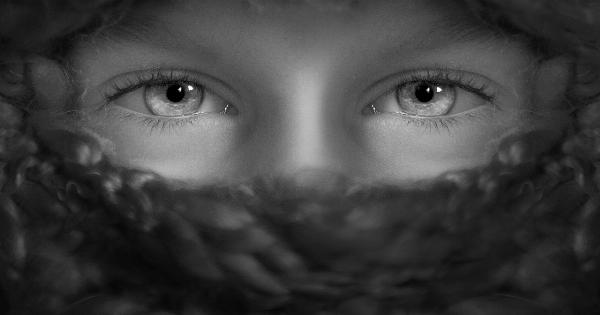Eye strain is a common condition that occurs when your eyes become tired from intense use, such as staring at a computer screen for an extended period or reading in poor lighting.
It is often characterized by symptoms like dryness, itching, burning, blurred vision, and headaches. While there are various causes of eye strain, one factor that is often overlooked is the role of sleep deprivation.
The importance of sleep for eye health
Sleep plays a crucial role in maintaining overall health and well-being, and this includes the health of your eyes. During sleep, your body undergoes essential processes of repair, restoration, and regeneration.
This allows your eyes to recover from the strain and stress they experience throughout the day and ensures their optimal functioning.
When you lack sufficient sleep, your eyes are deprived of the restorative benefits they need. This can lead to several eye-related issues, including strain.
The connection between lack of sleep and eye strain
Lack of sleep can contribute to eye strain in several ways:.
1. Dry eyes:
Sleep deprivation can disrupt the balance of tear production and evaporation, leading to dryness in the eyes. When your eyes are dry, they can become irritated, itchy, and red, resulting in eye strain.
2. Reduced blink rate:
When you are sleep-deprived, your blink rate decreases. Blinking is essential for keeping the eyes moisturized and lubricated. The reduced blink rate results in dryness and increased eye strain.
3. Increased sensitivity to light:
Sleep deprivation can make your eyes more sensitive to light. This sensitivity, known as photophobia, can cause discomfort and eye strain, especially when exposed to bright lights or screens.
4. Eye muscle fatigue:
During sleep, your eye muscles relax and rejuvenate. Insufficient sleep can prevent the restoration of these muscles, leading to strain and fatigue.
This can make tasks like focusing, reading, or looking at screens more challenging and contribute to eye strain.
5. Lack of lubrication:
Sleep deprivation can affect tear production and quality, impacting the lubrication of your eyes. Without proper lubrication, your eyes can become dry, gritty, and irritated, exacerbating eye strain.
6. Impaired focus and concentration:
When you are sleep-deprived, your ability to concentrate and focus diminishes. This can strain your eyes as you struggle to maintain visual clarity, leading to increased eye strain.
7. Increased stress and tension:
Sleep deprivation can lead to increased stress and tension throughout the body, including the muscles around the eyes. This can manifest as eye strain, headaches, and even migraines.
8. Reduced eye circulation:
During deep sleep, your body experiences increased blood circulation, including the blood flow to your eyes. Inadequate sleep limits this circulation and deprives your eyes of essential oxygen and nutrients, contributing to eye strain.
9. Compromised eye health:
Chronic sleep deprivation can have long-term consequences for your eye health. It may increase the risk of developing certain eye conditions, such as dry eye syndrome, puffy eyes, and even age-related macular degeneration.
10. Impaired immune function:
Sleep deprivation weakens the immune system, making your eyes more susceptible to infections and inflammations. These conditions can cause eye strain and other uncomfortable symptoms.
Conclusion
Getting enough quality sleep is crucial for maintaining healthy eyes and preventing eye strain.
Lack of sleep can contribute to various factors that strain your eyes, from dryness and reduced blink rate to increased light sensitivity and eye muscle fatigue. It is essential to prioritize sleep and establish healthy sleep habits to protect your eye health and overall well-being.





























